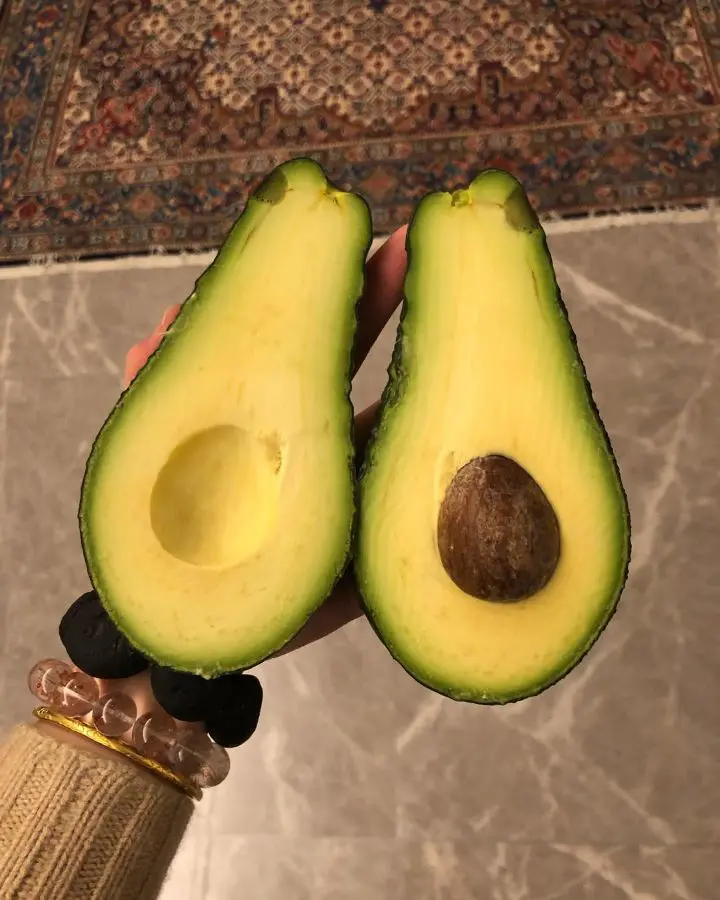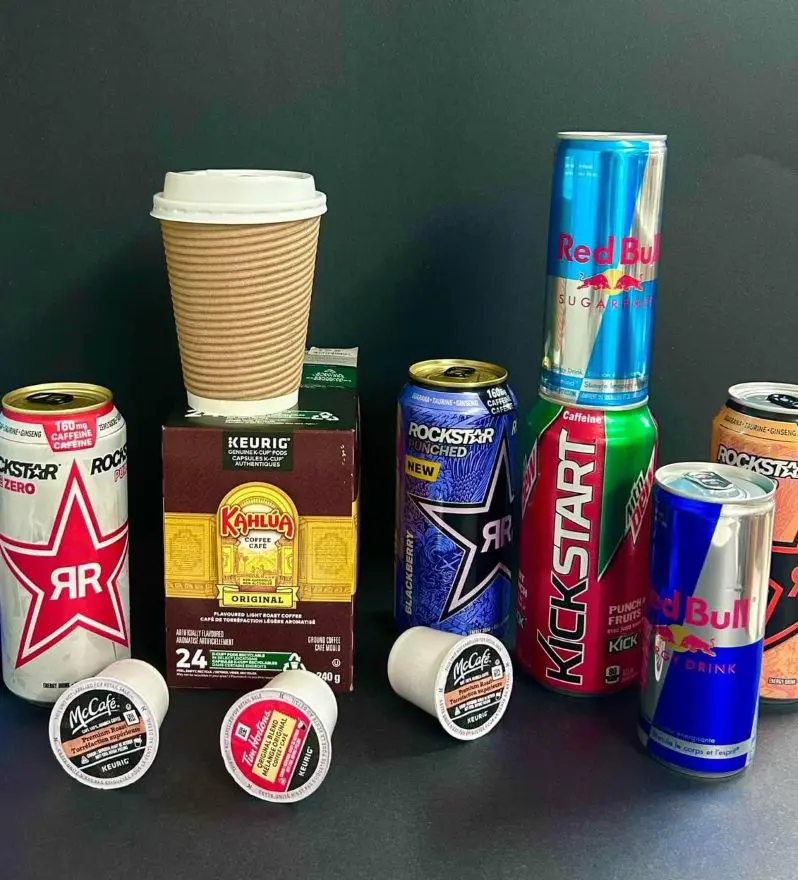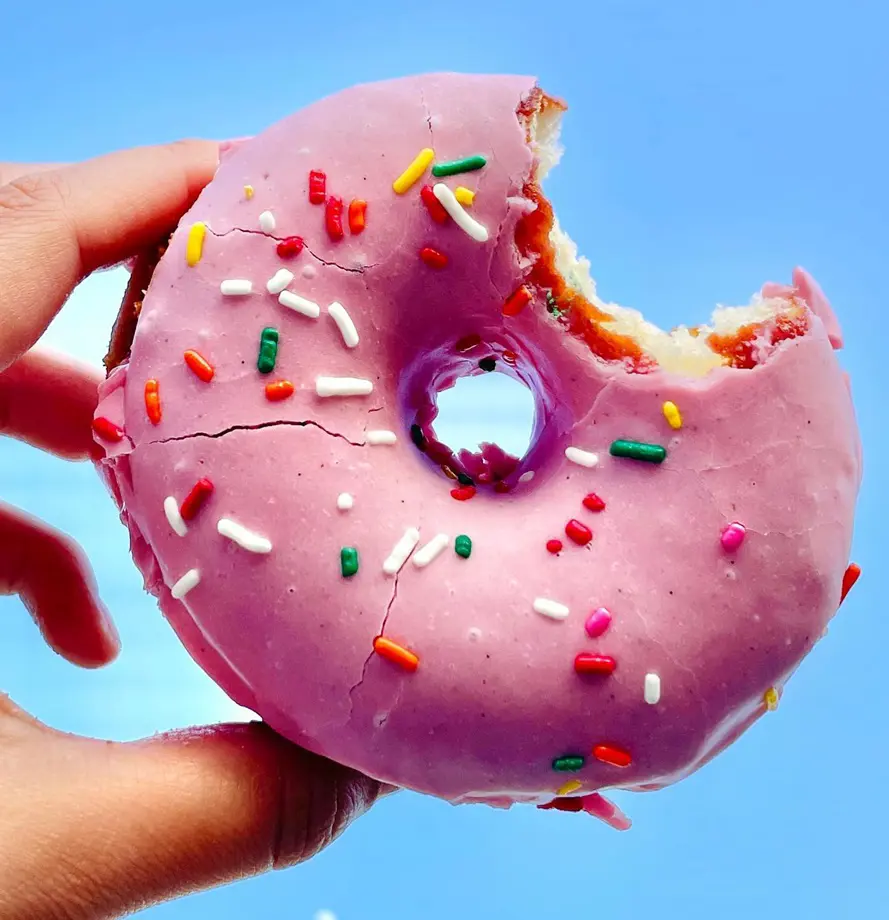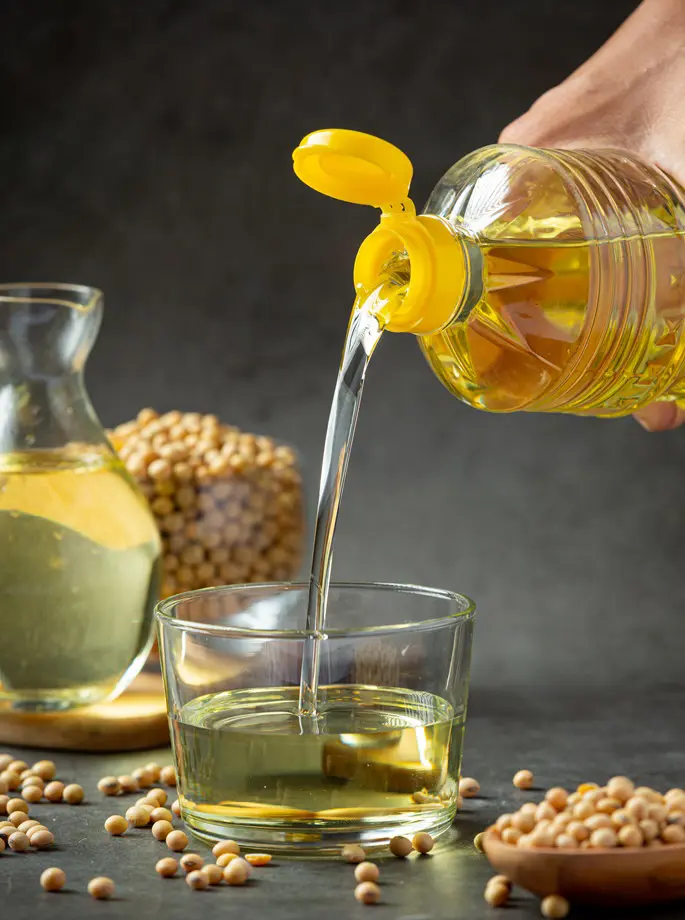How Much Water Should You Drink Per Day

This post may contain affiliate links. If you make a purchase through links on our site, we may earn a commission.
Water makes up 60% of our total body weight, making it an essential component to maintain our health. As it is present in all cells and organs of the body, proper water intake means every function in the body is running well.
There are multiple benefits of balanced water intake, however, both dehydration and overhydration are not recommended to avoid related problems in the body. Here, we will discuss the amount of water that you should need to consume daily to achieve the right balance for optimal health.
Recommended Water Intake
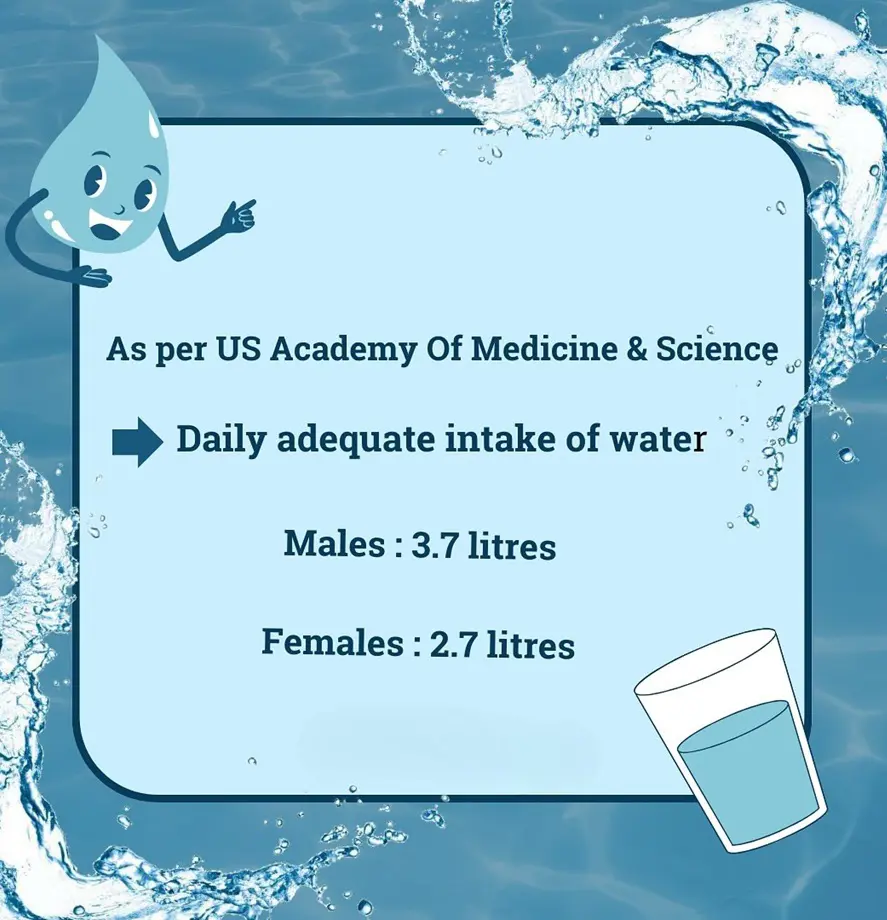
The US National Academies of Sciences, Engineering, and Medicine has recommended water intake for adults as follows:
- Men (aged 19+): 3.7 liters each day, including all fluids from foods and beverages.
- Women (aged 19+): 2.7 liters each day, including all fluids from foods and beverages.
Factors Affecting Water Needs
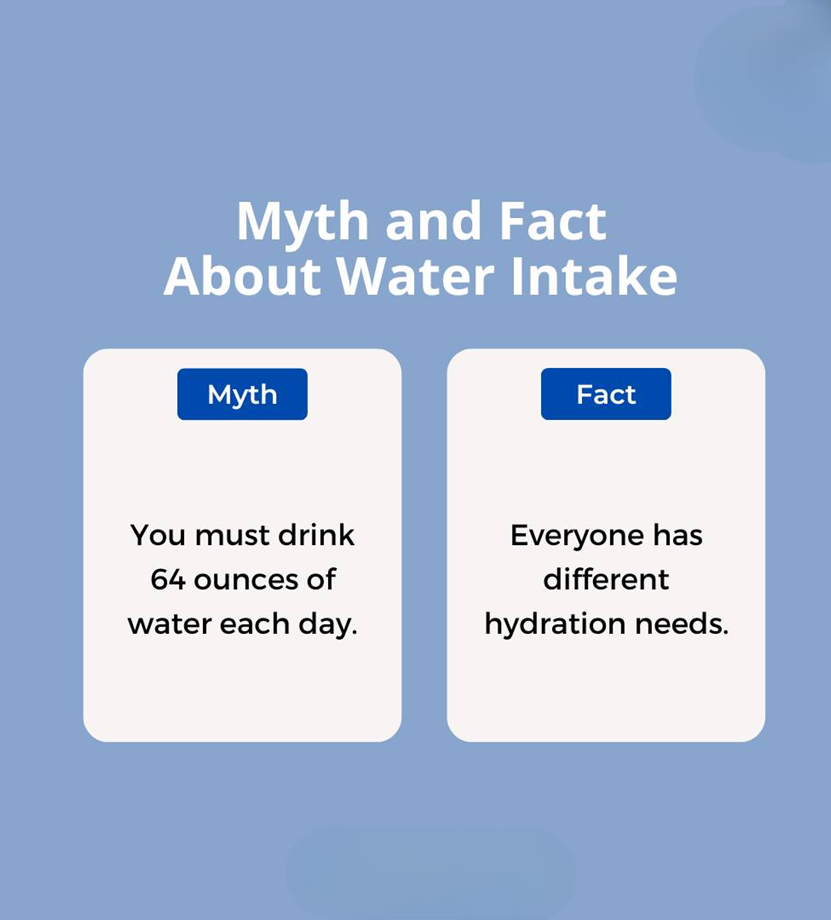
The hydration requirement for individuals differs depending on several factors. Below are some factors which affect the amount of water you actually need:
Age and Weight
Children younger than 19 don't need to drink the same amount of water as recommended above. Around 1 to 1.5 liters of water a day, including that from food sources, is enough for them.
Individuals who weigh more or have more muscle mass tend to require more water. Larger body weight also means you need more water to hydrate all the cells in your body. In general, we should be drinking water between half an ounce and an ounce of water for each pound of our weight.
Exercise
When we exercise heavily, we sweat more. This direct relation between these two factors is what makes increasing hydration important in people who exercise.
To replenish water that gets lost during exercise, try to get enough drink before you exercise. Doing so also benefits you by improving the results the exercise has to deliver.
Environment
The environment you are in is also important in deciding the water intake. For instance, a person residing in a hotter climate needs more water compared to the one in colder one. The water intake in this condition should be increased irrespective of the activity level.
It's generally recommended to drink 8 to 10 glasses of water on days when the climate is hot.
Alcohol Intake
The water consumption should be higher than the recommended amount for people who consume alcohol. As alcohol can increase the rate of production of urine, a property of a diuretic, you should increase water intake to compensate for the fluid lost.
Pregnancy & Breastfeeding
In pregnant and breastfeeding women, fluid in the body is utilized to support the growing baby. A total of 64 to 96 ounces of water is recommended in pregnant women and for breastfeeding women, the total requirement is 128 ounces a day. This amount is important to support the health of both mother and her baby.
Other Heath Conditions
There are a range of conditions for which drinking more water can help. Specifically, in cases like constipation, kidney stones and urinary tract infections (UTIs) increasing water intake can help in early healing. Water is known to decrease the bowel transit time, help kidneys flush toxins and also flush out pathogens related to UTI.
Importance Of Hydration
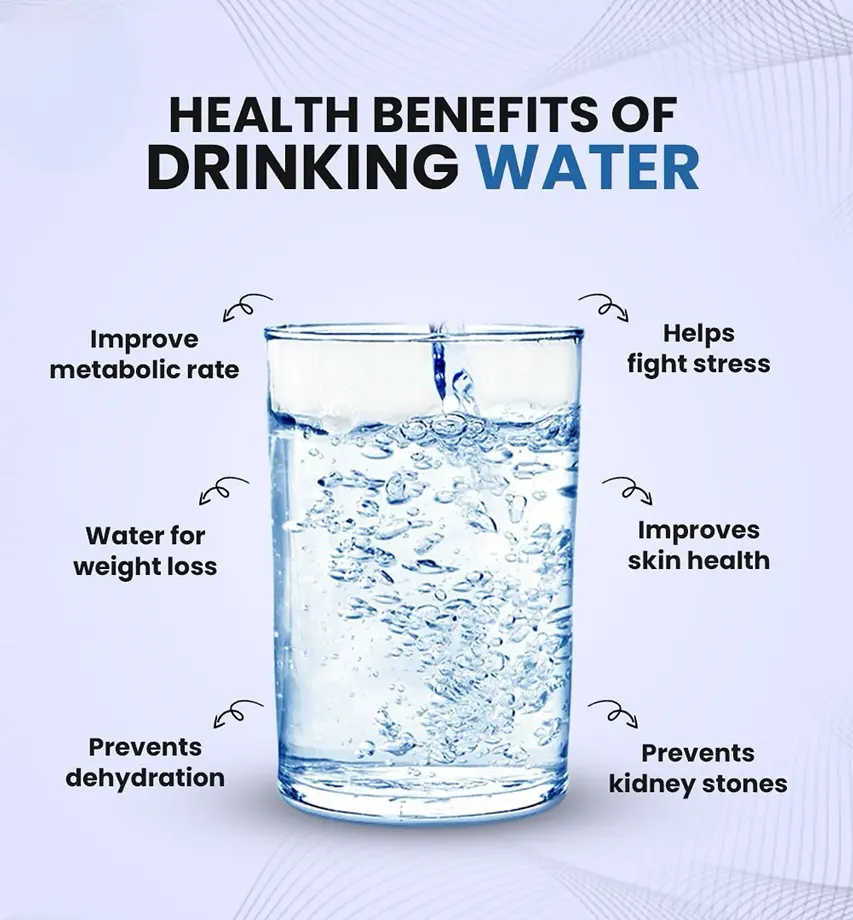
Water is essential for the smooth running of various functions in the body. Let's explore the key reasons why hydration is vital for overall well-being.
Body Temperature Regulation
Our body's temperature remains balanced when we are properly hydrated. The mechanism of the sweating process, which relies on the evaporation of water from sweat glands, in excess water, actually helps cool down the body.
So, in hot climates or in conditions where the body is extremely heated, drinking water in the needed amount is a must otherwise else, there is a higher chance of heat exhaustion.
Overall, water helps regulate body temperature, particularly in cooling the body.
Crucial For Kidneys
The process of natural detoxification in our body is continuously running, completely relying on water. The waste and toxins carried by the blood are filtered out by the kidneys while forming the urine.
If we look at the hurdles that might arise while we drink less water, there is a high chance of toxins build-up, including urea and creatinine in the body. Also, the accumulation would make this organ bear the strain leading to the development of conditions like kidney stones.
Nutrient Transport
Water makes sure the nutrients present in food are digested and absorbed smoothly. The function is not limited only to that, the absorbed nutrients are transported to all the body cells with the help of water.
Cushions Joints
Our joints are cushioned by a fluid present in them, called the synovial fluid that keeps joints lubricated. This fluid reduces friction in the joints while we move, and the interesting point is this fluid is largely made of water. Therefore, when we are properly hydrated, our body can produce enough amount of this fluid that allow for effortless movements.
Important For Digestion
Water in suffice helps break down food and softens the stool. As a result, the food bulk passes easily into the gut, lessening the bowel transit time.
Brain Health
Less water means more chances of headaches. Not only that, dehydration can lead to the degradation of cognitive functions like difficulty in concentrating and lack of clarity.
Other Importances
Most of our body functions are connected to the availability of water. Besides the above listed ones, our skin health, burning off of calories, and vitality of cells are determined by how hydrated we keep ourselves.
Practical Tips for Staying Hydrated

For all individuals, who want to be more mindful about hydration, follow the practical tips below:
- You can carry a water bottle to have easy access to water throughout the day.
- A lot of apps are available where you can set reminders, using these apps will ensure you don't miss on your water-consuming schedule.
- It's important to drink water before you feel parched. Make sure you don't wait to get thirsty and then only consume.
- Drink sufficient water before exercise and meals. Making this habit can help you meet the target.
- Water-rich foods are also important to get the required amount of water. Try to include fruits and vegetables high in water to remain hydrated.
- As excess caffeine and alcohol can dehydrate the body, try to limit their consumption. Or, if you need to drink more of them, make sure you drink more water.
Drinks That Can Replace Water
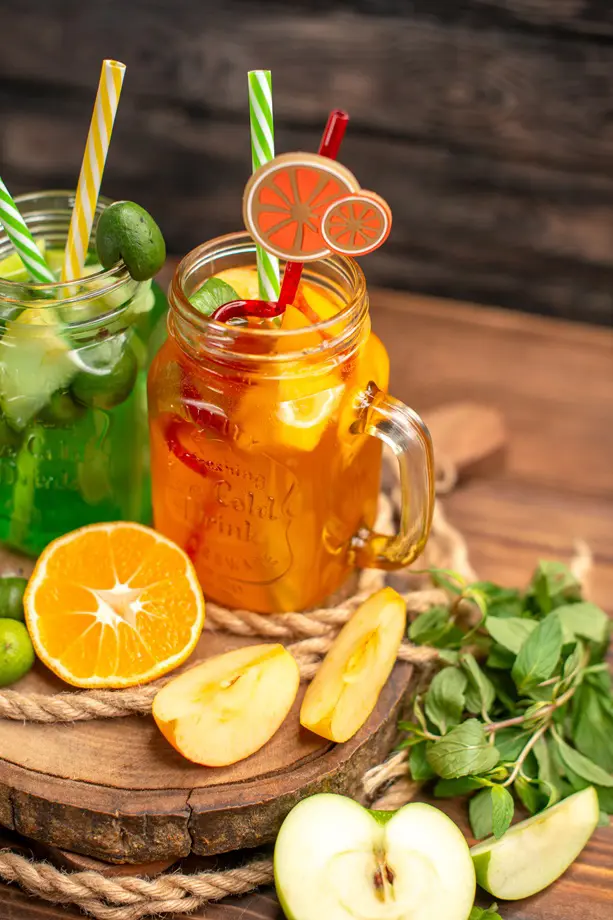
Relying completely on water to stay hydrated might sound impossible to some individuals, especially to those who can not stick to a water-drinking habit. Based on the availability and what excites you the most, you can choose the drinks from the list below to meet the required intake:
-
Coconut Water
Coconut water as a replacement for water can be the best choice, especially in summer when they are in season. This drink available naturally can hydrate you, besides that, the electrolytes present also benefit your health.
So, coconut water can help to maintain hydration levels and also replenish fluids in the body. As it is almost nil in sugar and artificial additives, it is a healthier option to keep you hydrated.
2. Herbal Teas
If you are fond of herbal teas then keeping yourself hydrated won't be a big deal. Herbal teas prepared without added sugar can be a great hydration option.
Herbal teas come in a variety of flavors, so this option won't bore you as you can make desired changes in flavor. You can also make an iced version of these teas to ensure you remain hydrated in summer. Herbal teas also have other benefits besides hydration, related to the presence of beneficial compounds like antioxidants.
The only thing to be aware of while choosing a herbal tea is to go for the ones that have minimal diuretic effects. This will prevent excess loss of fluids from the body.
3. Milk
Milk has a high water content of about 87%. Due to this amount, studies have also validated that this nutritious drink is as effective as water for hydration, and can be used to replenish fluids in the body, especially after exercise. With the right amount of sugar and protein, milk can make a good option for those needing a post-workout recovery drink.
4. Infused Water
Infused water is a simple preparation-involving mix of water with fruits, vegetables, or herbs. Different from normal water, these infusions have a good flavor that makes being hydrated less boring.
So, for individuals who find plain water dull, opting for the natural flavors of infused water can help you stay encouraged. The benefit also extends to the presence of antioxidants, minerals and vitamins present in these different additions.
5. Fruit and Vegetable Juice
Fresh juice made of fruits and vegetables is also a good hydrating source. These drinks are further rich in antioxidants, vitamins and minerals, making health benefits double.
What's important while considering fruit and vegetable juices as an alternative to water is that, they should be consumed in moderation. Fruit juices especially are high in sugar, so to prevent excess sugar intake, you can either limit the amount or dilute it before consuming.
6. Sports Drink, Sparkling Water or Electrolyte Water
Other different drinks that can replace water include sports drinks, sparkling water and electrolyte water. All these drinks have a high percentage of water and are less in sugar and artificial additives.
Sports and electrolyte water can be great in hot days to help you maintain fluid level whereas sparkling water can be a great alternative for soda as it has no sugar and calories in it.
How To Know You Are Dehydrated
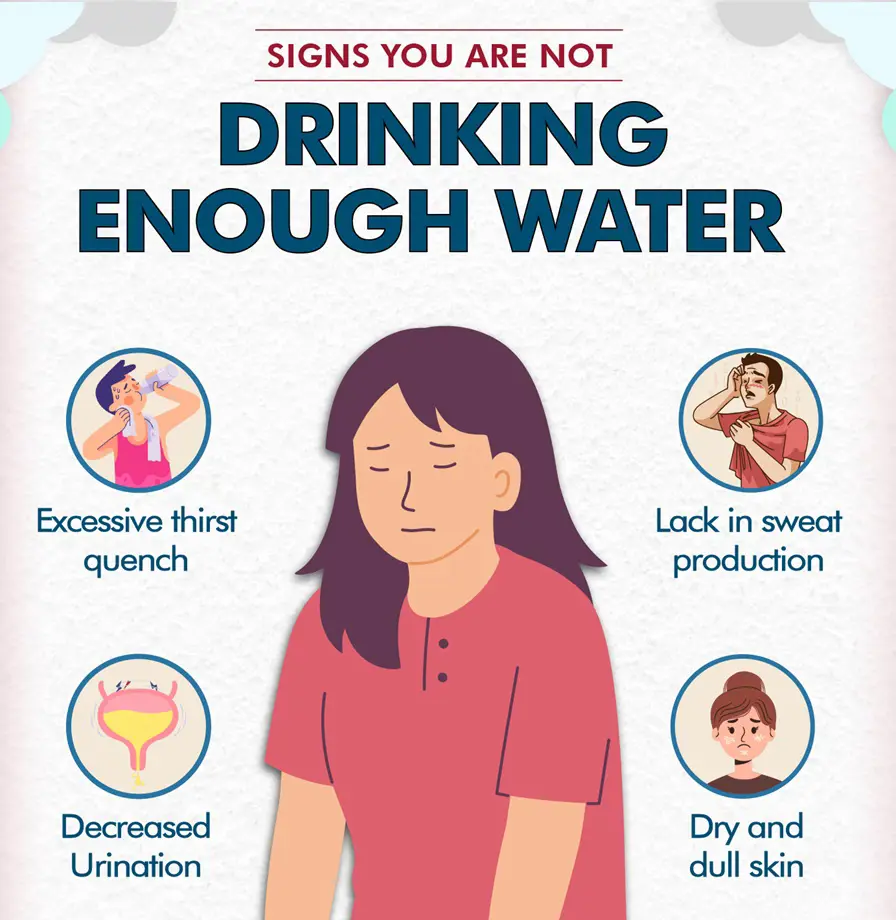
Without enough water, body functions can't run well. So, lack of enough hydration might show up as various signs which are discussed below:
Urine color: The color of urine is normally light yellow, if the urine gets darker in color then it it indicates insufficient hydration.
Reduced Urination: When there is no sufficient amount of water in the body, your body turns on water-saving mode. So, a decrease in urinating frequency directly is a sign of dehydration.
Thirst and Dry Mouth: If you are feeling thirsty, then it's a clear signal that your body has less water. Dry, sticky or cracked lips also mean you need to focus on your hydrating schedule.
Lightheadedness: This happens if you remain dehydrated for a long time. The blood volume decreases with a decrease in water amount due to which cells are devoid of required nutrients. Hence, it's normal to feel nauseous and lightheaded.
Long-Term Effects of Not Drinking Enough Water
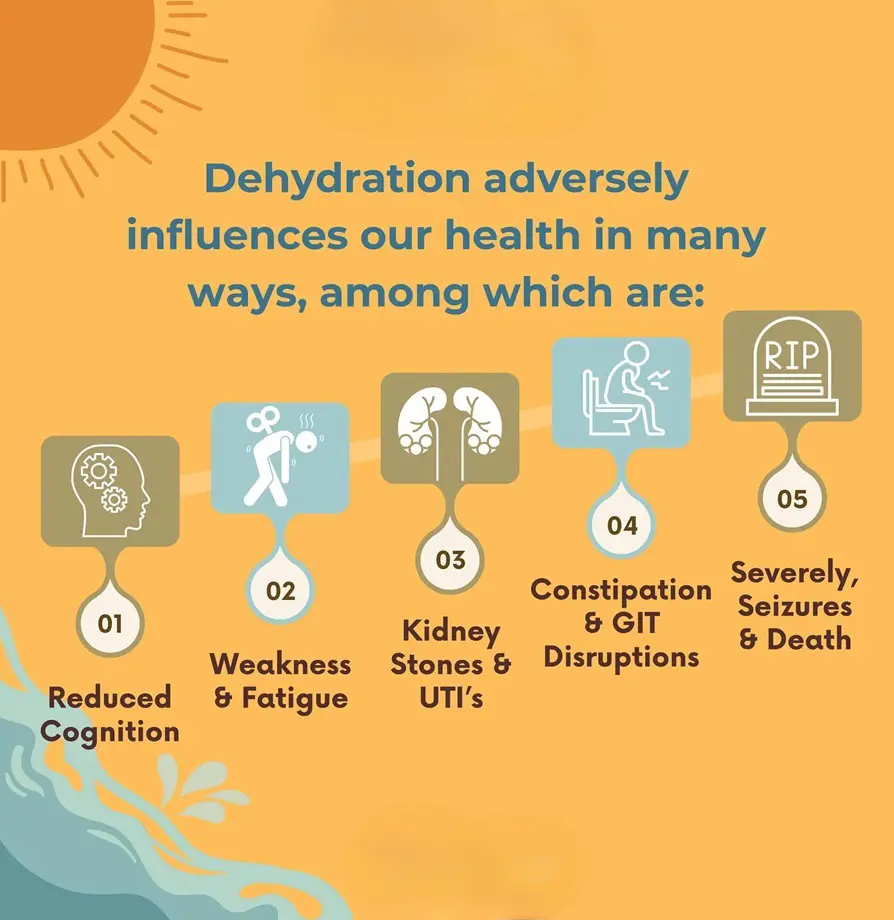
Not drinking enough water for the long term can have serious effects on our bodies. The variety of possible health issues include:
Chronic Dehydration
When you don't drink enough water for a long time, your organs have to bear excessive strain which may have several effects including difficulties in regulating body temperature and impaired metabolism.
Kidney Stones
The excess minerals and salts that need to be excreted in the body are generally flushed out via urine. But, in the absence of the right amount of water, they get deposited in our kidneys.
Over time, on continuous shortage of water, stones may develop.
Urinary Tract Infections (UTIs)
The right amount of water intake helps to get rid of any foreign UTI-causing pathogen that enters the urinary tract. So, when water is unavailable, the rate of occurrence of UTI caused by these pathogens increases.
Constipation
Less water in the body means greater chances of harder and drier stools. This leads to constipation and becomes even more severe with prolonged dehydration.
Cognitive Impairment and Mental Fog
A mild dehydration is enough to cause trouble in brain-related functions. Inability to focus, feeling confused and brain fog are some of the common conditions related to dehydration.
Dry Skin and Skin Conditions
Without needed water intake, you can't expect your body cells to remain hydrated. So, as a result of dehydration, the skin can turn dry and can get more prone to infections and inflammations.
High Blood Pressure (Hypertension)
When we drink less water, our body has to work hard in order to get the limited amount of blood to all cells of the body. The higher strain in the organ can lead to hypertension.
Heat Stroke and Heat Exhaustion
Heat stroke is one of the major effects seen in hot and humid climates as a result of dehydration. As the body's cooling system can't work effectively in the absence of water. there is a higher risk of heat stroke and heat exhaustion in such scenarios.
What Happens On Drinking More Water?
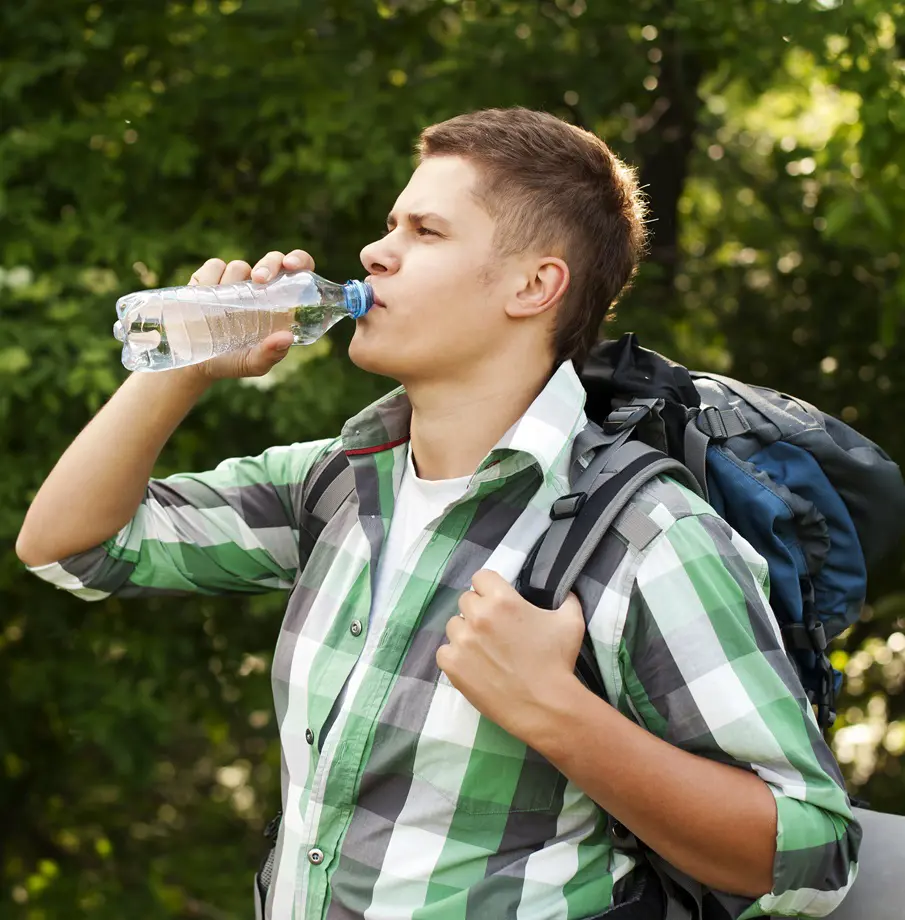
There are almost no cases where the effects of drinking more water have been heard. Drinking water in the required amount can make kidneys healthy, however, on dealing with excessive water, kidneys might get overwhelmed.
Kidneys not only excrete water in urine, but they also flush out ions like sodium. So, excess water can disrupt the balance of the normal sodium level, leading to a condition known as hyponatremia.
As a result of this condition, when the body lacks sufficient electrolytes in the body, symptoms like nausea, headache, and confusion can be seen. Overall, drinking excess water is not suggested to prevent these conditions and healthy adults need to drink water in moderation, based on activity level and thirst.
Recent posts
Lifestyle
Lifestyle
The Benefits Of Avocado Seeds You Must Know About
After devouring the avocado, we have the habit of dumping the seed without giving it a second thought. However, this part of the fruit is just as essential as the avocado because it delivers numerous nutrients and potential health benefits that might...
Lifestyle
How Much Caffeine Is Too Much In One Day?
Without even realizing it, caffeine is stapling in our everyday lives. Our mornings usually begin with a cup of coffee, likewise, to get through the afternoon slump we might sip on an energizing drink or grab a refreshing soda on a sunny day to quell...
Lifestyle
What Happens When You Stop Eating Sugar
Sugar is one of the most widely consumed substances worldwide and, not to forget, in excess. The average intake of sugar in the USA exceeds the recommended amounts and that's what has contributed to the health havoc in the majority of the population....
Lifestyle
How To Eat Cactus Fruit Prickly Pear And What Does It Taste Like
Prickly pear, the unspoken hidden treasure in the list of fruits, is scientifically known as Opuntia ficus-indica and grows on the prickly pear cactus (Opuntia species). The appearance of this delight is very appealing and striking. By seeing its app...
Lifestyle
Is Soybean Oil Healthy? Good Vs. Bad
Soybean oil is a well-known cooking oil, preferred in kitchens around the world. This oil stands out in every corner of the world for its mild flavors and versatility, however, when it comes to its healthiness the topic becomes debatable mainly becau...
Lifestyle
How Many Servings Of Vegetables Should You Aim For Daily?
Veggies (our favorite side dish) are very important for staying healthy at any age. They are full of important vitamins, minerals, and fiber that help our body run soothingly. But how many servings should you actually eat each day (many of us never s...
